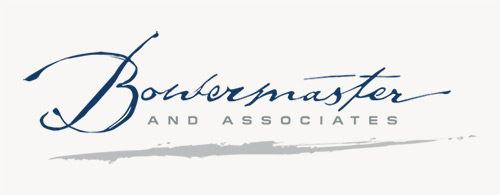Bowermaster's Safety Video Library.
Insurance & Risk Management / Workers' Compensation
Workers' compensation costs are rising and laws are evolving all the time, leaving employers with tough choices when selecting an insurance broker. There are complex procedures and terminology, which require a deep understanding of the system.
What does this mean for your company?
Our team of Risk Advisors are Certified Workers' Compensation Professionals, meaning we provide increased knowledge and guidance specific to the workers' compensation industry. Through a consultative analysis, we identify errors that commonly occur and provide recommendations to cost-saving processes to help lower your insurance costs. By working with Certified Workers' Compensation Professionals, we ensure that you understand the language and any implications that may affect your organization.
Injuries
Every injury you prevent saves you money, because the least expensive claims are the ones that never happen. By establishing a safety culture, you'll avoid both medical costs and lost-time costs. The average indemnity claim cost in California is over $68,000. Considering that claims stay on your x-mod calculation for three years, this average claim can cost you more than $90,000 in premium increases.
In addition, a corporate culture that values safety all the time, every time, will do more than save out-of-pocket injury costs. You'll be keeping your people on the job, which enhances your company's productivity and profitability. Your demonstrated commitment to keeping employees safe from harm sends a strong message to them that they are important, which helps build positive employee-employer relationships.
Bad Hires
One of the most common comments I hear when reviewing workers' compensation claims with a business owner is: “I never should have hired that person”. A recent study revealed that 40% of workers' compensation claims are filed by employees in their first 12 months on the job. No one wants to hire a claim, but do your current hiring practices protect you?
Delays
Studies shows that the longer you delay in reporting a workers' comp claim, the higher the costs of the claim- up to 30% higher. The sooner an injury is reported, the sooner care and planning can begin. In addition, early reporting ensures that the employee receives benefits in a timely manner, reducing the likelihood of litigation. Make it a corporate policy that employees report all injuries to their supervisors and that supervisors report all claims within one hour.
Controlling delays also means working with urgency, handling safety hazards immediately, providing quick, prompt care for injured workers and staying on top of open claims throughout the claims cycle. This kind of urgency needs to be committed to, from the top - down.
Lost Time Injuries
In California, 25% of all workers' comp claims lead to disability leaves of more than 16 weeks- despite the fact that only 5-10% of injuries are actually serious enough to justify more than a few days off the job. Employers who plan ahead and immediately provide transitional work assignments for all injured workers can reduce the proportion of injuries that end up as lost time claims- and achieve substantial claims cost reduction.
Litigation
When employees seek legal assistance, claim costs rise. In California, attorney involvement in claims is both frequent and costly. While some employees start out in search of deep pockets, most employees turn to attorneys because they feel they have been treated unfairly or have not been given enough information to assure that they will get a fair deal within a “system” they perceive as complex and unfriendly.
Taking the time to explain workers' compensation rights and responsibilities, responding promptly to injured employees with both concern and assistance, providing support throughout the recovery period, and protecting job security with stay-at-work programs all help to dispel many of the typical reasons that drive an employee into a lawyer's office. Really, it's all about showing you care. And by helping your company, you are helping the injured employee as well. Hiring an attorney can hurt injured employees in the long-term. It is often the attorney who advises the employee to stay out of work and on disability for as long as possible, thus hurting the employee's chances of ever returning to suitable employment.
Mistakes
There's only one thing worse than paying high workers' comp premiums, and that's overpaying them. Shockingly, recent findings show that almost half of employers are overpaying on their premiums because of mistakes in classifications, premium audits, rules interpretations, and experience modification calculations. The average overcharge found is 8% of the premiums involved. For example, rating a dispatcher or management in the governing class code, rather than as “clerical” can lead to thousands of dollars in overpayments.
Fraud
Creating and communicating an aggressive fraud policy with employees, and enforcing to the fullest extent of the law will diminish fraud in your organization. As an employer, there are measures that you can take regardless of how active the carrier is in investigating and/or fighting a claim. The key is the knowledge of how to use the system to your advantage. In order to stop the “domino effect” from happening in your company, when one employee files one questionable claim after another, you must act quickly and decisively.
Your Ex-Mod
The benefits of implementing our Work Comp 360 process is obtaining your minimum mod, which is the lowest mod your company can earn. To achieve your company's minimum mod, you will not have any claims for a period of three years; this results in the lowest possible workers' compensation costs for your company. The cost savings can be significant! Most employers believe a mod or 1.0 is good, whereas their minimum mod may be .60- a 40% difference! Each of the first seven building blocks will bring you one step closer to taking back control of your workers' comp costs and achieving your minimum workers' comp cost.






